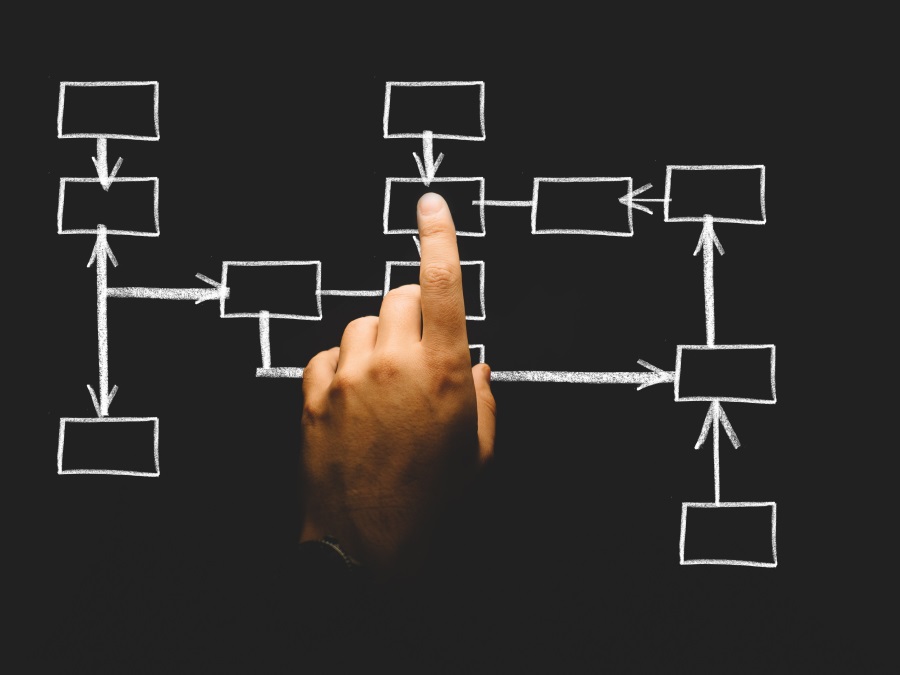Lately I’ve been reflecting on one of Theatre Communications Group’s strategic priorities: to innovate and experiment across all programs, services, and products to benefit our membership and the field. With this season preview issue and its focus on the power of education programs, I was reminded of an important educational experience I once had. For inspiration, I dug through some old boxes at home looking for floppy drives containing a proposal I had co-written with my space settlement design team, 22 years ago, when I was a senior in high school. (Each of these floppy drives from yesteryear was only able to hold 1.44 megabytes of data. Digital storage has evolved so that now the most complex thumb drives hold up to two terabytes of data. Innovation!)
The year was 1996, and the competition was hosted by the Kennedy Space Center in Florida. As we stepped off buses from various places across the country, we began sizing up our competition: Were they smarter? Could they pull this off? Could we? We split into teams, with students representing schools from all over the U.S., all set to battle each other in science and math. We assigned fictitious corporate identities to our groups, and each group set out to develop a proposal to design, build, and maintain a lunar settlement for more than 10,000 inhabitants in 2019. Our ideas developed into a prototype, including a lunar robot, and we presented it to NASA scientists, who served as judges for the competition.
To win we needed to think big—think outside the box. And while there were practical limitations around the rules of mathematics and scientific theories, there was no limit to our ambition. We were a team committed to solving a complex issue: building a space settlement! Instead of worrying about the other teams’ abilities, we decided what we really needed was each other to pull this off. We listened to each other’s perspectives. We trusted each other’s experiences and contributions. We collaborated. We were productively critical of misunderstandings, and we respectfully challenged conventions—many of the traits that theatre people learn so well through the collaborative process of making shows. And we succeeded. We nailed it, capturing both first and second places.
With that experience on my mind, in August I hosted a meeting with 14 Chicago-area TCG member theatres. We shared a delicious meal together, and Kate Lipuma, TCG’s new board chair and executive director of Writers Theatre, facilitated a discussion. Findings from this discussion (and from many others across the country at previous events) revealed that many leaders recognized that hierarchical leadership and “best practices” from 20, even 10 years ago, are no longer able to solve the challenges facing them. Employees’ expectations of the workplace are different and more complex, and organizational cultures are changing accordingly.
These changes can be seen in today’s employee handbooks. Far from being merely obligatory documents handed out on a staffer’s first day and then largely forgotten, they are often now comprehensive, containing not only the required laws and policies, but also spelling out organizational values, including equity, diversity, and inclusion; work/life balance; transparent hiring practices and salary commitments; and de-silo-ization and cross-collaboration. Employees are rightfully demanding more from their employers, and organizations are listening and responding. Business models are being challenged, reimagined, and evolved, and technology is accelerating the process exponentially. While I can’t address all of these issues in a single column, I can say that letting go of some assumptions about best practices and customs of the last 20 years, and grappling with some uncertainty, is needed to resolve these challenges.
How is TCG addressing these complex challenges, and building its own culture, as well as inspiring others to embrace change? How do we make our work agile, in response to the changing needs of our field and our staffs? For one thing, TCG is responding by holding an entire forum on evolving organizational cultures at our annual Fall Forum on Governance, Nov. 9-11, in New York City. This year’s theme is CultureMakers, and we will look behind the curtain, discussing and articulating best practices, from hiring and retention to organizational design and values statements to employee development and artist well-being to anti-harassment and misconduct policies, as well as equity, diversity, and inclusion.
My space settlement design days are far behind me, but I continue to draw from that experience as I think about innovation and experimentation in my own work. As I look back on how that team of teenagers thrived and succeeded, it was because we created a culture that valued diverse opinions and embraced radical thinking and ingenuity. Strong cultures breed resilient and productive organizations. As culture changes and practices evolve, so too must leaders’ willingness to innovate and experiment.


